
September 2016
TOO GOOD TO MISS:
An opportunity to share from the literacy intervention coser.
Teaching Them All to Read - Foundations of Literacy
Ever feel like you're not reaching ALL your students' needs or doing ALL that you can in your classroom? Do you have a desire to learn more in order to better provide foundational literacy pieces and how to put them in place to meet the needs of your students? If you answered yes then, join our course: "Teaching Them All to Read/Foundations of Literacy."
These sessions will empower teachers by examining the five essential components of literacy. Our learning sessions will include the what, how and why of the reading foundational skills. Emphasis will be on instruction of phonemic awareness, phonics, fluency, vocabulary, and comprehension. Additionally, spelling and oral language will be explored, demonstrated, and examined. Attention will be given to advance understandings of literacy, reflection on current practices, and how to formulate/adjust new plans of instruction when thinking about children's reading development.
Whether you use a basal or an intervention program, you will leave with a strong foundation on how students acquire critical components towards becoming proficient readers.
This is a series will meet six times between October and April. The sessions start October 27. There is a cost for all participants of $1500. Registration is here.
Curriculum, Instruction & Assessment:
Regional Sessions
The annual catalog of regional sessions available through OCM BOCES for 2016-17 is mostly complete and you can view on My Learning Plan. OCM BOCES component districts register for regional sessions at no additional cost.
Collaboratives
The intention of these groups is to communicate information, provide a forum for sharing and collaboration across districts all towards building capacity and working towards continuous improvement. Audience is teachers, teacher leaders, administrators. Collaboratives will focus on the practice or implementation of curriculum, instruction and assessment.
Instructional Coaches Collaborative - October 6
This is an opportunity for Instructional Coaches to come together to learn, reflect, share successes, collaborate and plan within a supportive community. It is a continuation of last year's Instructional Coaches Network, but new participants are always welcome! We will focus on developing and refining the knowledge, skills and mindsets necessary to have successful 1:1 coaching conversations and to lead effective teams. This collaborative opportunity offers a variety of easily replicated facilitation strategies, as well as the time to practice and apply them. We hope you'll join us!
Common Core Mathematics Grades 9-11 Collaborative Session - October 12
This is intended to be a session where Math teachers can share ideas and materials, related to grades 9-11, with their colleagues, either within their own district or with other districts. Teachers will be expected to work together to determine best practices, identifying troublesome areas within each grade level curriculum as well as teaching approaches that have been successful.
K-6 Literacy Collaborative - October 13
This Literacy Collaborative is an opportunity for K-6 teachers to come together and explore instructional practices and strategies for improving literacy outcomes for all students. Participants will be able to collaborate with and learn from each other, share ideas and best practices and plan for the application of new learning in a supportive environment. If you are a K-6 teacher looking to continuously improve literacy instruction for your students, please join us!
AIS Mathematics Collaborative - October 17
Providers of AIS in mathematics must have a thorough knowledge of the coherence of the mathematics content standards and of the strategies that are used throughout the grade levels to build deep understanding. AIS providers must also be able to diagnose the learning gaps of students, and provide appropriate strategies needed. These sessions will provide the opportunity to work with other AIS providers to deepen our understanding and explore, apply, and share instructional strategies that work with struggling learners. Participants will also communicate throughout the school year via a Schoology site.
7-12 Literacy Collaborative - October 25
Are you interested in engaging your students in deeper learning of your content area through literacy-based instruction? If you answered "yes" to this question, please join the 7-12 Literacy Collaborative. Participants will have the opportunity to explore, apply, and share literacy-based instructional strategies that work in any content area.
PreK-5 Mathematics Collaborative - November 7
This is an opportunity for elementary teachers in PreK - grade 5 to come together to learn, reflect, share successes, collaborate and plan for mathematics instruction within a supportive community. Participants will be able to work with others in their grade band to explore new strategies, share successful practices and refine existing lessons to meet Common Core Standards for Content and Practice. Participants will be connected via a Schoology site for continued communication throughout the school year.
Social Studies Collaborative - November 30
These facilitated sessions are for K-12 teachers and administrators who participated in the Summer 2015 and Summer 2016 Social Studies Curriculum Work to continue the process of curriculum mapping, unit design and inquiry writing. Participants will collaborate to share information, ideas and instructional practices on the teaching and learning of social studies content and skills. Participants may sign up for a single session or for multiple sessions, as desired
6-8 Mathematics Collaborative - December 5
This is an opportunity for middle level teachers in grades 6 - 8 to come together to learn, reflect, share successes, collaborate and plan for mathematics instruction within a supportive community. Participants will be able to work with others in their grade band to explore new strategies, share successful practices and refine existing lessons to meet Common Core Standards for Content and Practice. Participants will be connected via a Schoology site for continued communication throughout the school year.

Leadership Groups
Leadership groups will meet less frequently than collaboratives with the focus on sharing, planning and collaborating. The intention is to build capacity of systems. Information is intended to be shared with other groups within your district.
Literacy Leadership - October 25
Literacy Leadership offers administrators and teacher leaders the tools they can use to plan for a culture of literacy. Planning for literacy with the intent to improve all students' literacy skills involves collaborative leadership and research-based literacy practices. Join Literacy Leadership to learn more about how to lead for literacy.
Math Leadership - November 14
Math Leadership group will meet three times during the year (please register for each session individually). The purpose of the group is to share information from SED , BOCES and from districts to the region and with each other, The desired outcome is to support each other as individuals, as well as, systems towards continuous improvement in the instruction of mathematics. Participants will have opportunity to collectively explore resources to build capacity. All information, materials, and protocols will be available for turn-key purposes.
Social Studies Leadership Network - November 17
This network of Social Studies leadership will meet to serve as a conduit for information, learning and discussion about the New York State K-12 Social Studies Framework, assessments, and best practices in Social Studies classrooms. Social Studies teacher leaders and administrators will work collaboratively to expand their own knowledge and expertise, and, in turn, provide leadership to their own schools and districts.
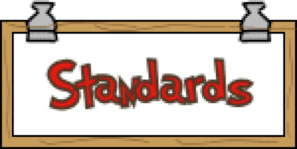
Standards and Instruction
The Teacher's Literacy
Toolbox Series:
Reading, Writing and
Research in a Common
Core Classroom - Begins October 4
This three-session series will bring the Common Core alive as we study the connections between evidence, close reading of complex texts, text-based discussions, argumentation, integrating information from multiple texts and writing from sources. The first session will focus on making complex texts accessible through the practice of Close Reading. The second session will emphasize Writing from Evidence. The third session will wrap up the series with a concentration on Inquiry and Research. Participants will explore the knowledge and skills necessary in order to navigate the "diverse, information-rich environment of the 21st century" (CCLS, Appendix A)
Strategies to Engage the Minds of the Learner - October 18
How do we move students from compliance to engagement? This workshop provides an opportunity for participants to explore how we might use strategies effectively when planning lessons and units. Participants will fill their toolbox with strategies designed to support a student-centered classroom with an emphasis on interacting with content to support deep learning. Throughout the workshop, participants are invited to share and apply their learning as they frame a lesson aimed to challenge the strategic learner.
Pre-Calculus in the Common Core
Mathematics Curriculum - October 19
This workshop is intended to be an opportunity for Pre-Calculus teachers to get together to share ideas about what has changed in their Pre-Calculus courses as a result of the Common Core curriculum, and what has remained the same. We will be working from the Modules supplied by New York State as a reference. Participants are encouraged to bring any textbooks or materials that are used in their course
Formative Assessment Strategies:
Check-Ups for Learning - October 20
Looking for a high leverage, research-based practice to improve student learning? Evidence shows that learning increases when students have a clear understanding of where they are in relation to the learning goals and specific steps they can take to close the gap. This half day session will focus on designing, implementing and using formative assessment strategies to make instructional decisions and provide students with meaningful feedback and opportunities for self-reflection. Don't wait until your next test to assess student learning. Let's make learning "check-ups" part of our daily practice!
Please note: the room and facilitators will also be available after the workshop, from 12:00-3:00, if participants want work time, planning or support to apply the best practices of learning targets to an upcoming unit or lesson. This is something new added to provide additional time for teams or individuals to have dedicated time to plan for implementation of new knowledge and skills offered from the morning.
Good Practices in Geography - October 20
Geographic Reasoning is one of six Social Studies Practices that are emphasized in the NYS Social Studies Framework, but Geographic Reasoning involves more than reading a map. In this interactive workshop, participants will learn how to be more successful in connecting geography to their curriculum in middle school social studies, Global History and Geography, and American History. Lessons will be presented that are appropriate for middle and high school students, and teachers will have time to work with colleagues to come up with their own lesson ideas. Materials and resources will be provided including Clickable PDF maps, GeoHistoGrams, and other tools.
Social Studies Content Support for Ninth Grade
Global Teachers - November 2
What do teachers of 9th Grade Global History need to know about the content and the Social Studies Practices to help their students succeed? What has changed in the NYS Social Studies Framework for 9th Grade Global History and what has stayed the same? What kinds of thinking do students need to do? Dr. John Langdon, professor of history at Le Moyne College and member of the NYSED Content Advisory Panel, will help participants prioritize the Key Ideas in the 9th Grade Framework, and explore sources that are essential for students' understanding of the concepts and connections of Global History.
Standards Based Planning for the 21 Century:
Instruction for All - November 9
An important goal of the workshop is for participants to become comfortable with and build skills at using the standards-based planning process. *What makes planning for teaching and learning in a standards-based environment different from planning for teaching and learning in a non-standards based environment? Why are these differences significant?
- How can we Frame the Learning so that the what, why, and how of the learning are clear to learners?
- What are the ways that we can engage our learners in active, meaningful learning?
- How can we structure learning experiences so that instruction, learning, and assessment are integrated?
- How do we ensure balance and appropriateness in the design, selection, and use of a wide range of classroom assessment tools?
This series infuses the work of reform in NYS with solid proven instructional and assessment practices. It includes the elements from ITIP.
Instructional Rounds:
A Collaborative Process to Improve Instruction - November 30
In this workshop, we will explore the building blocks of Instructional Rounds with an emphasis on why we might engage in this form of professional development and how we will implement the practice into our professional learning. I often tell participants that Instructional Rounds is the most selfish form of professional development because it is all about improving our own practice. Come see how Instructional Rounds can be an incredible opportunity to support professional growth!
Project Based Learning
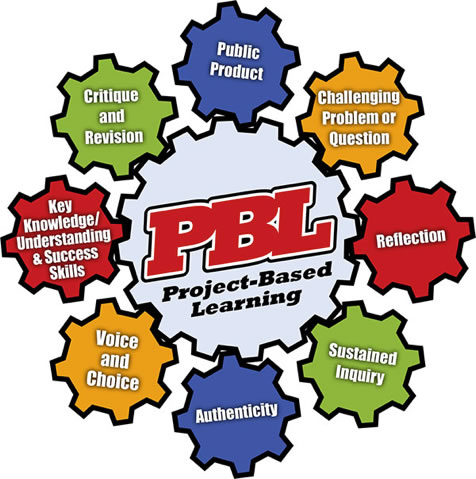
PBL 101 for Elementary Educators - Begins October 5
PBL 101 is a foundational four-day workshop inspired by the work of the Buck Institute for Education, New Tech Network, Edutopia and Expeditionary Learning. It provides attendees with the skills and knowledge needed to design, assess and manage a rigorous, relevant, and standards-based project. The workshop is a balanced blend of direct instruction, video analysis, hands-on work time, resource sharing, and peer collaboration and feedback.
PBL 101 for Secondary Educators - Begins November 2
PBL 101 is a foundational four-day workshop inspired by the work of the Buck Institute for Education, New Tech Network, Edutopia and Expeditionary Learning. It provides attendees with the skills and knowledge needed to design, assess and manage a rigorous, relevant, and standards-based project. The workshop is a balanced blend of direct instruction, video analysis, hands-on work time, resource sharing, and peer collaboration and feedback.
Problem Based Learning for Math Educators - October 18
This workshop will guide middle school and high school math teachers through a learning process in which they will gain an understanding of the key differences between Project Based Learning (PBL) and Problem Based Learning (PrBL). We will analyze different ways to link your curriculum and technology with a PrBL approach to create a rigorous and engaging learning environment for your students. Participants will also utilize workshop time to start planning their first PrBL experience for their students.
Problem Based Learning for Science Educators - October 20
This workshop will guide middle school and high school science teachers through a learning process in which they will gain an understanding of the key differences between Project Based Learning (PBL) and Problem Based Learning (PrBL). We will analyze different ways to link your curriculum and technology with a PrBL approach to create a rigorous and engaging learning environment for your students. Participants will also utilize workshop time to start planning their first PrBL experience for their students. This session is for middle school and high school science educators and administrators who want to learn more about Problem Based Learning.
Updating Your PBL to Gold Standard - October 19
During the summer of 2015, a new ASCD book was published called Setting the Standard for Project Based Learning (Larmer, Mergendoller, Boss, 2015). At this time the Buck Institute for Education shifted from the "PBL 8 Essentials" to the "Gold Standard Design Elements". This training is designed for teachers trained in PBL 101 prior to the shift to Gold Standard PBL. Teachers will learn about the Essential Project Design Elements for Gold Standard PBL and will have time to redesign projects they currently have to Gold Standard and inform new projects for the future.
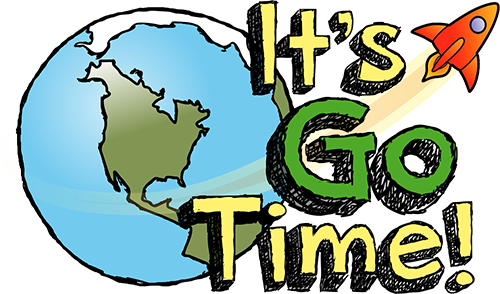
It's Go Time!
Don’t miss out on registering for the fall Science Conference: November 8.
In case you missed some blogs by our team
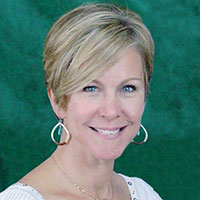
Randi Downs shares a new word: Habitude! Read about her thinking about habits to increase deep learning .
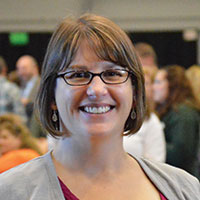
Catie Reeve articulates two goals to assist in building trust in coaching relationships:
- Listen with Acceptance- Leave ego behind and listen deeply. Seek to understand perspectives and experiences.
- Ask Questions- Enter into coaching conversations with a spirit of inquiry and curiosity.
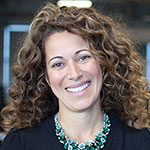
Frances Malave explains what Roaming Around the Known means in Reading Recovery. What connections to your practice do you see?

Patrick Shaw examines the tenets of PBL as it relates to personal experience with our children who are young adults. He includes suggestions for ways to include presentations into instruction.
Through Curriculum, Instruction and Assessment component districts have the opportunity to send participants to regional offerings at no additional fees. Other districts may also attend and fees apply. Regional offerings are developed based on district input and expressed interests. Additional focus areas or alternative dates may be arranged especially for a district using included days or at regular daily rates. CI&A facilitates support for instruction through coaching, regional sessions and direct in-district work.
- In-District Days: Districts may contract for specialized work or projects by contacting Lynn Radicello at lradicel@ocmboces.org
- Coaching: OCM BOCES offers direct instructional coaching in the areas of literacy, Project Based Learning, math and general instructional coaching. Districts may arrange for coaching by contacting Lynn Radicello at lradicel@ocmboces.org
Follow Us Online |
||||||
| OCM BOCES Instructional Support (IS) offers specialized E-Newsletters centered around our different departments. To view the choices or to sign up, visit our E-News Sign-up page. You may unsubscribe at any time. | Visit our Website |
|||||